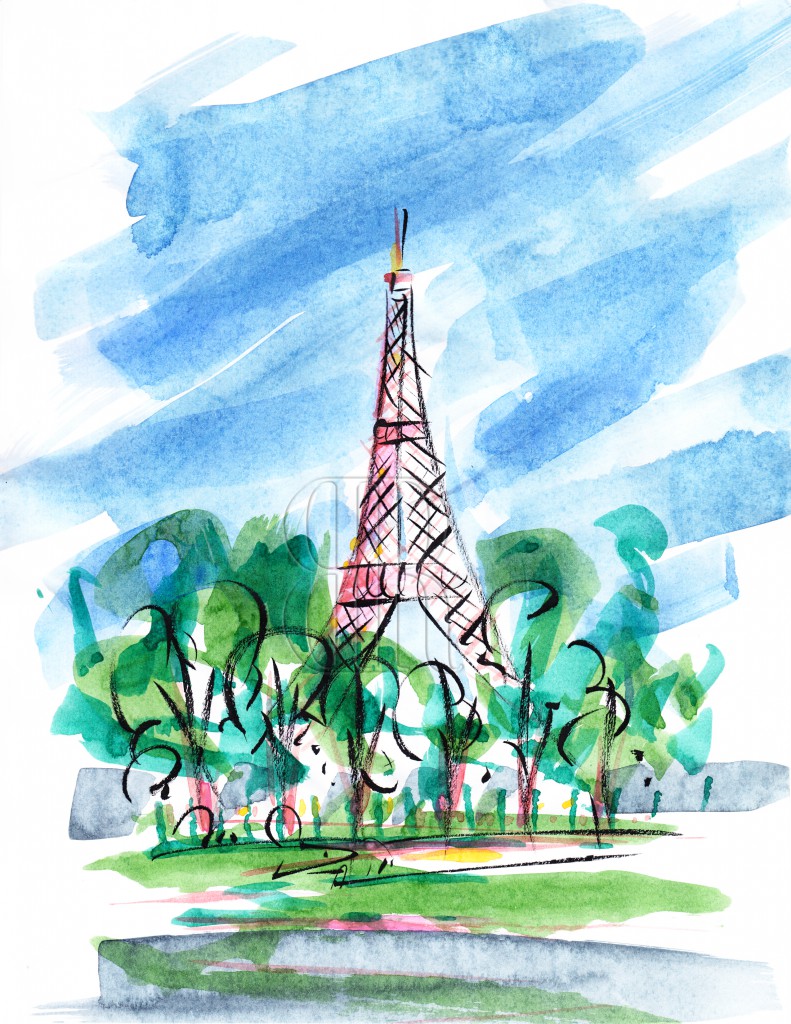A Haunting in Courbevoie – “Encounters in Paris: A Collection of Short Stories”
19 Monday Mar 2012
A Woman’s Paris™ in Cultures
Tags
5 Reasons to Leave a Lover, Blessed Mother of Sorrows, Carolyn Moncel, Chicago, Chicago Tribune, Courbevoie France, Eglise Sainte Agnes, Encounters in Paris, Entrepreneur.com, Forbes, France, Giovannis Room, International Herald Tribune, Josephine Baker in Art and Life, Kiratiana's Travel Guide to Black Paris, Loyola University, Paris, Paris Noir, Railway Confessions, The Stone Face, Wall Street Journal, Wired News, Working Mother
Share it
By Carolyn Moncel
“A Haunting in Courbevoie” delves into the mysterious ways in which experience is jogged back to the remembrance of things foregone from the book Encounters in Paris: A Collection of Short Stories by Carolyn Moncel (used by permission).
Some people swore the house was haunted. How could that be when the house in question was God’s house? Ellery thought about this as she stood outside of the 17th century, limestone Catholic Church, Église Sainte Agnés. It was the oldest church in Courbevoie, located two kilometers west of Paris. She had gone there hoping to find some spirits, maybe that of her own mother, who had just died that morning back in Chicago. She promised her mother that she would always take care of her. When her mother needed her the most, Ellery wasn’t there.
What Ellery needed most was absolution from the guilt of living her own life. She had moved to France eight years earlier to be with her new husband. Although she spoke with her mother daily by phone, she rarely saw the rest of her family back in the States. To be honest, her twin daughters had never even met their grandmother formally. They never knew what she was like, how funny she could be, or even how much she loved soap operas and Pepsi-Cola. Instead they got to know her only in three minute intervals. So when the girls still wanted to go to school, despite having learned of their grandmother’s passing, it was hurtful to Ellery, but oddly, natural at the same time. After all, considering the relationship and their ages, who could really blame them? Worried about how the twins would react once the death became real to them, Ellery opted to leave them with her mother-in-law in order to attend the funeral.
Unfortunately, the distance was not caused by the traditional reasons families fracture: fights or annoyance. Ellery was terrified of flying on airplanes. Rather than deal with the paralyzing fear, she avoided air travel all together. Yet, flying 4,000 miles to confront all of the ghosts she left behind was unavoidable.
The huge wooden door was already unlocked allowing Ellery to enter. The entire church was dark and empty, save for a few lit candles off to the sides of the tabernacle. She rarely attended church anymore; still Catholic rituals remained in her memory on autopilot. She genuflected, crossed herself and sat down in the third row from the back. She wanted to kneel and pray, but when she tried, no words came. She sat back against the wooden pew. The tears streaming down her cheeks wouldn’t stop. She’d messed up and she would never be able to fix it.
Someone entered from the door just behind the alter. Early morning mass would begin soon. She figured it was the person who opened the Church doors that morning. Ellery could see a figure approaching in the distance. As the vision became clearer, it appeared to be an elderly French woman with cotton white hair. Wearing a cornfield blue flowered dress and black sturdy shoes, she walked with a slightly hunched back. Though her shuffled steps were careful, her balance was steady. Ellery judged the woman to be much older than her mother and yet she appeared to be in relatively good health. She knew it wasn’t the woman’s fault, but seeing her that way made her mother’s fate seem a bit unfair and untimely.
The woman sat down next to Ellery and began to pat her hand gently. They spoke in French.
“What is it my dear?” asked the woman. Ellery took her time before answering. Although Ellery spoke French, she did so at times with tremendous difficulty. Ironically, today would be the day she would express her most intimate feelings (to a stranger no less) without hesitation, practice or embarrassment.
“My mother is dead…And I don’t know what to do about it,” Ellery said quietly.
“I am sorry. When and where, Madame?”
“This morning in the United States“
The woman squeezed Ellery’s hand tighter.
“First, we pray together,” the woman said.
“Then, I am going to sit here with you until you do know.”
They were saying the rosary, the woman reciting in French and Ellery in English, each invoking the power of her mother’s patron saint, the Blessed Mother of Sorrows.
No more words passed between them. The woman pointed to a fresco on the ceiling above them. It was the Virgin Mary holding the baby Jesus, a reassuring image from Ellery’s childhood, indicating that everything would be all right. Ellery began to concentrate on the painting.
This was her absolution for her sins and she felt empowered. Before she could express her thanks, the woman had gone, disappearing without a trace.
Ellery now knew what she had to do and how to do it. Nothing was ever the same again after that.
 Carolyn Davenport-Moncel, a virtual media and web consultant by day and author by night, moved to Paris from her hometown Chicago in 2001. She received her bachelor’s degree in Communications from Loyola University. Known for her online articles on media relations, Moncel owns MotionTemps, LLC (a bilingual Digital Project and Web Content Management firm with offices in Chicago, Paris, and Geneva) and its subsidiary, Mondavé Communications, a media relations training and publishing company.
Carolyn Davenport-Moncel, a virtual media and web consultant by day and author by night, moved to Paris from her hometown Chicago in 2001. She received her bachelor’s degree in Communications from Loyola University. Known for her online articles on media relations, Moncel owns MotionTemps, LLC (a bilingual Digital Project and Web Content Management firm with offices in Chicago, Paris, and Geneva) and its subsidiary, Mondavé Communications, a media relations training and publishing company.
 She has written, placed articles, or been featured in such diverse publications as Chicago Tribune, Forbes, Wired News, International Herald Tribune, Wall Street Journal, and Working Mother.
She has written, placed articles, or been featured in such diverse publications as Chicago Tribune, Forbes, Wired News, International Herald Tribune, Wall Street Journal, and Working Mother.
She currently resides in Lausanne, Switzerland with her husband and two daughters. Author of Encounters in Paris – A Collection of Short Stories and 5 Reasons to Leave a Lover – A Novella and Other Short Stories, her latest collection is called Railway Confessions – A Collection of Short Stories, which was released in March 2012.
You may also enjoy A Woman’s Paris® post, French Impressions: Carolyn Moncel on the importance of following your dreams. Carolyn Moncel, author and consultant who moved to Paris from her hometown of Chicago, shares the importance of the many role models she has had and the two women, in particular, who made an enormous impact on her life.
Fiction: The Last Passage, by award-winning Moroccan writer Hachim Sbaa whose fictional writing looks at the life of an elderly woman as she is lives life by herself and tries to figure out what truly matters and how she can fill her time and what is left of her life.
The Child Madeline, by writer and educator Natalie Ehalt who shares her love of Madeline and brings a deserved respect for girls and children worldwide. Including excerpts from Mad About Madeline: The Complete Tales, by Ludwig Bemelmans.
A Fairy-tale Weekend in the French Countryside, by Parisian Abby Rodgers who writes: “Cars rolled in, guests suited up in white, delicious cuisine, divine choux pastry tower, sparklers, dancing till dawn…”
I dream of Paris. Writer and educator Natalie Ehalt shares the quote from Napoléon, who wrote in 1795, “A woman, in order to know what is due her and what her power is, must live in Paris for six months.” To Natalie, Paris is the ultimate in elegance and style. It is old-fashioned, it is cobblestone, it is aprons, it is a chauffeur helping you step off the curb…
Text copyright ©2012 Carolyn Moncel. All rights reserved.
Illustration copyright ©2012 Barbara Redmond. All rights reserved.
barbara@awomansparis.com



3 comments
Rev. Carmen Gail Williams said:
April 2, 2012 at 1:37 pm
I teared and cried because I remember her with laughter and fun. I have shared this link so others might experience the ourpouring of you in what you have written.
Janice Hiestand said:
March 19, 2012 at 8:52 am
What a lovely morning read. Definitely on my book list.
Thank you.
Janice
Carolyn Moncel said:
March 21, 2012 at 10:50 am
Janice, thank you so very much! Carolyn